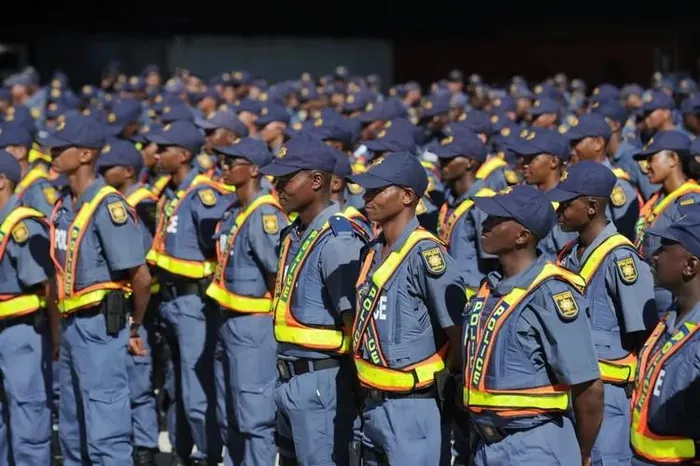This isn’t a career rush — it’s a survival stampede
OPINION

The image is powerful: young police recruits, emblematic of dedication and purpose. What's even more striking is the sheer volume of hopefuls queuing up to join their ranks.
Image: Armand Hough / Independent Newspapers
MORE than 185,000 applications in just 48 hours. That’s not recruitment. That’s a national emergency.
When the South African Police Service (SAPS) opened its latest recruitment drive, it expected strong interest. What it got was a tidal wave. Young people — more than 105,000 of them women — crashed the system, desperate to get in. Gauteng alone saw 53,000 applicants. Every province lit up. But this flood of eager candidates isn’t just about a career in law enforcement. It’s about survival.
Behind the polished image of recruits saluting on parade grounds lies a brutal truth: almost half of South Africa’s youth are unemployed. That’s not just a statistic — it’s a full-blown crisis. And now, it’s playing out in real-time, with thousands trying to elbow their way into one of the few remaining gateways to stable income: a job with the state.
Let’s be clear. Policing is a calling. It demands discipline, courage, and a deep commitment to public service. But when 185,000 people apply within two days, the motivation isn't just about duty. It's about desperation.
The SAPS Basic Police Learning Development Training Programme (BPLDTP) was meant to bring in new blood and reinforce the ranks. What it’s exposed is a broken economy bleeding out the hopes of a generation.
It’s easy to praise the patriotism of young people willing to serve. But that sentiment rings hollow when the same young people would jump at a shot in any other sector — if only there were openings. The truth is, for many, it’s not about wearing the badge. It’s about putting food on the table.
The gender split is especially telling. With women outnumbering male applicants by more than 25,000, we see how the crisis cuts across traditional lines. Young women, often facing double barriers in the workforce, are leading the charge. That’s both inspiring and alarming. Inspiring because it shows determination. Alarming because it shows how few alternatives they see.
Politicians talk about job creation, but their words often don’t match results. We need more than policy. We need action — bold, immediate, and structural. That means investing in industries that can absorb large numbers of workers: green energy, agriculture, infrastructure, and digital services. It means rethinking education and training to match real-world needs. And it means confronting the uncomfortable fact that our economy is locking out its future — its youth.
The SAPS, for all its flaws, offers what few other institutions do right now: structure, salary, and a chance to build a life. That’s why thousands are fighting to get in. But we shouldn’t have to rely on law enforcement jobs to soak up economic slack. Not everyone can or should be a police officer. And no democracy thrives when its young people see the uniform as a ticket out of poverty.
This is a warning shot, not a win. The rush to SAPS shows us where we are — and how far we’ve fallen. If we don’t act fast, we’ll lose a generation not to crime or idleness, but to the slow burn of systemic neglect.
South Africa’s young people are not lazy. They are not unambitious. They are not waiting for handouts. They are fighting to be seen. The 185,000 applications are a message. Are we listening?